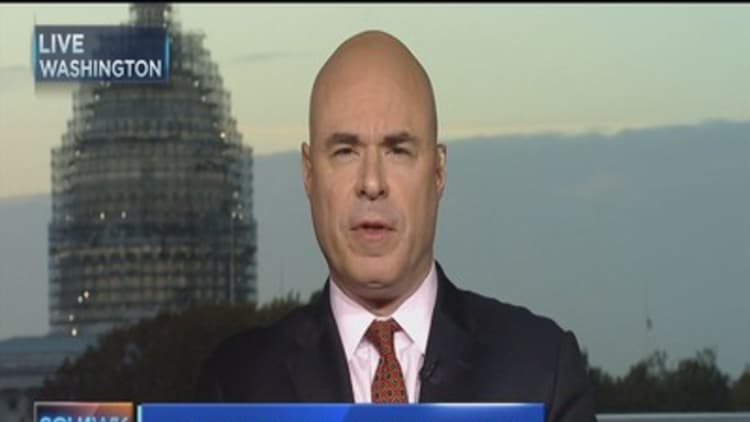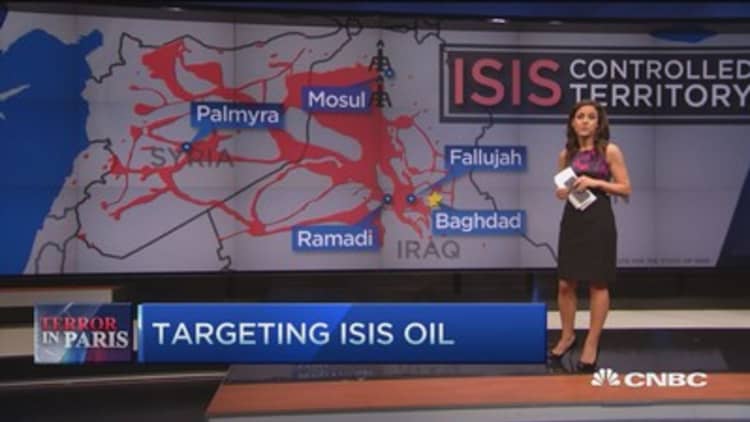


Crude oil settled more than 2 percent lower on Tuesday, resuming its slide after a one-day pause, as oversupply concerns returned to suppress a market briefly lifted by geopolitical worries linked to the Paris attacks.
A Reuters poll of analysts forecast that U.S. crude stockpiles rose for an eight straight week last week, building by 1.6 million barrels to reach near-record highs above 490 million barrels seen in April.
Industry group American Petroleum Institute issued its own preliminary report on the stockpile situation at 4:30 p.m. EST (2130 GMT), two hours after market settlement. West Texas Intermediate futures moved higher, just above $41, after API was reported to have shown a slight draw in supply.
Official inventory data from the U.S. government's Energy Information Administration is due on Wednesday.
Brent crude futures were down 81 cents at $43.75 a barrel by 2:23 p.m. EST. In August, Brent hit a low of $42.23, which marked a 6-1/2-year bottom.
U.S. crude futures were down $1.07 at $40.67 a barrel, after hitting a session low of $40.60. In August, U.S. crude had sunk to a March 2009 low of $37.75.
Brent's premium over U.S. crude was below $2 a barrel, versus nearly $4 at the start of November. A narrower spread between the two tends to encourage a greater flow of oil from abroad into the U.S. market, as crude grades pegged to the pricier Brent become more affordable.
On Monday, crude prices had gained more than 2 percent on security fears related to Friday's attacks in Paris, and France's heavy bombing of Islamic State targets in Syria in the aftermath. But as calm returned to world markets on Tuesday, traders and investors focused again on the oversupply in oil.
"Yesterday's rally was a reaction to the likely increase in geopolitical risk despite the fact Syria itself is not a big oil producer," said Pete Donovan, broker at New York's Liquidity Energy. "But as emphasis returns to the oversupply in oil, the market is giving back those gains."
U.S. crude futures have been under $50 longer now than they were during the height of the financial crisis in 2008/2009.
Options on U.S. crude expire later on Tuesday, with open interest mostly gathered around put options, which give the seller the right, but not the obligation, to sell U.S. futures at both $40 and $45 a barrel.
--CNBC contributed to this report


